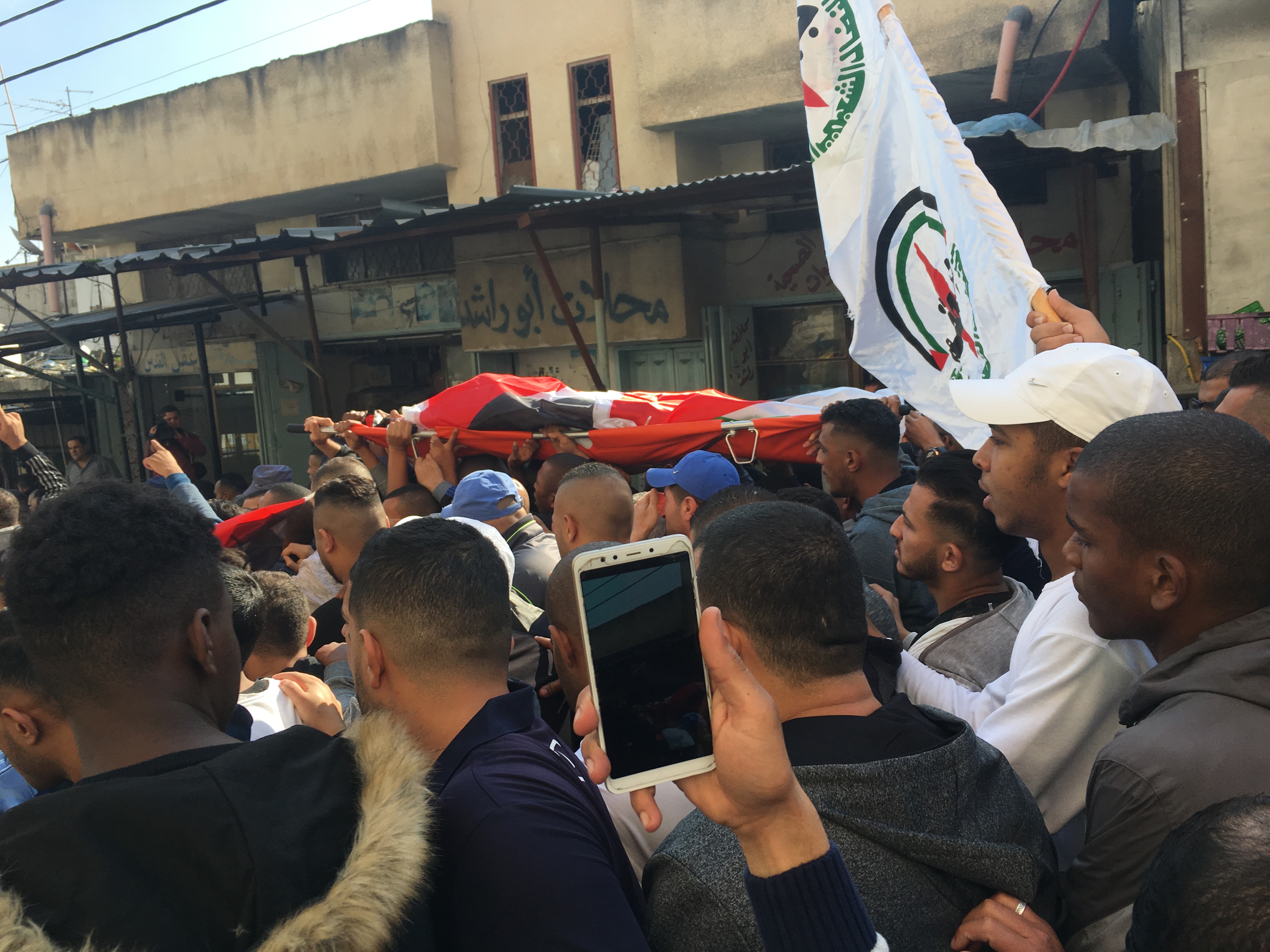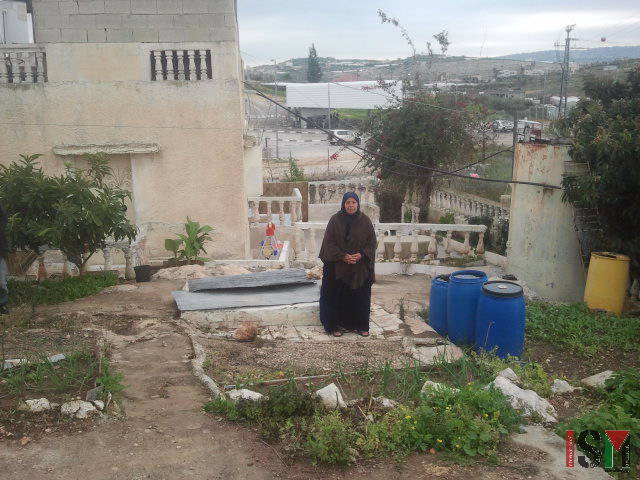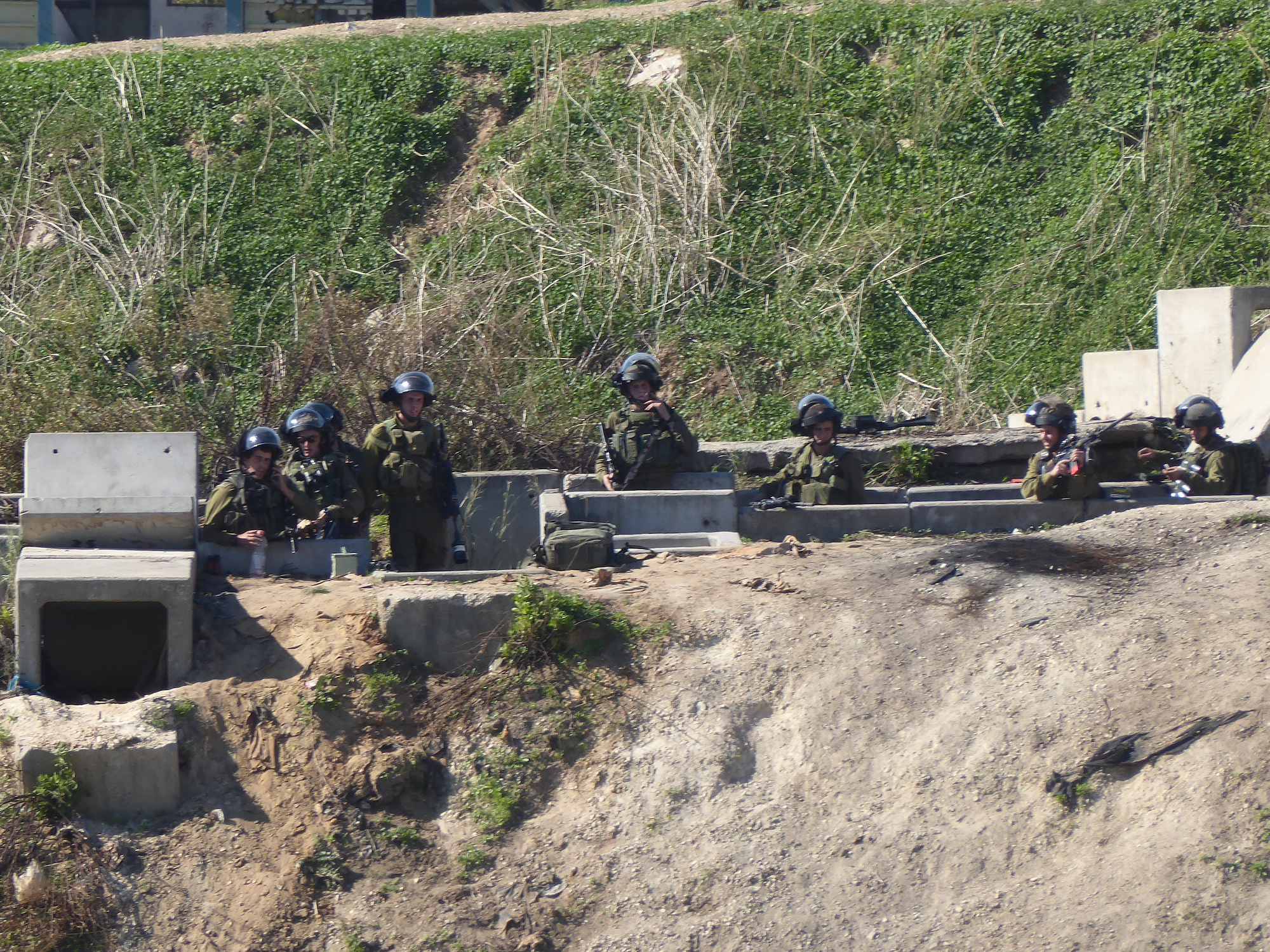Tag: Tulkarem
-
The funeral and death of the Palestinian martyr, Mohammed El Habili
Mohammed El Hibali was gunned down by the Israeli Occupation Forces in Tulkarem. The 22 year old mentally ill man was shot in the head and leg. He was rushed to the hospital and pronounced dead on arrival. The funeral was held that afternoon. SHOW MORE
-
63-year-old widow lives in an isolated home facing a checkpoint
January 4th 2015 | International Solidarity Movement, Tulkarem Team | Jubara, occupied Palestine In the outskirts of the village of Jubara, bordering the Jubara checkpoint, sits the home of 63-year-old, Shawqiye Hamaide, Umm Yousef. Mother of two daughters and grandmother of 6 children, Umm Youssef is originally from the village of Beit Lid, but moved…
-
In Tulkarem, students afraid to go to university after two months of violence
December 2nd, 2015 | International Solidarity Movement with Meta Peace Team, Tulkarem team | Tulkarem, occupied Palestine Palestine Tech University (PTU) in Tulkarem has now been closed for two days, for unknown reasons. The school has been witnessing many clashes between the students and the Israeli forces since the beginning of October. Dozens of young people…



